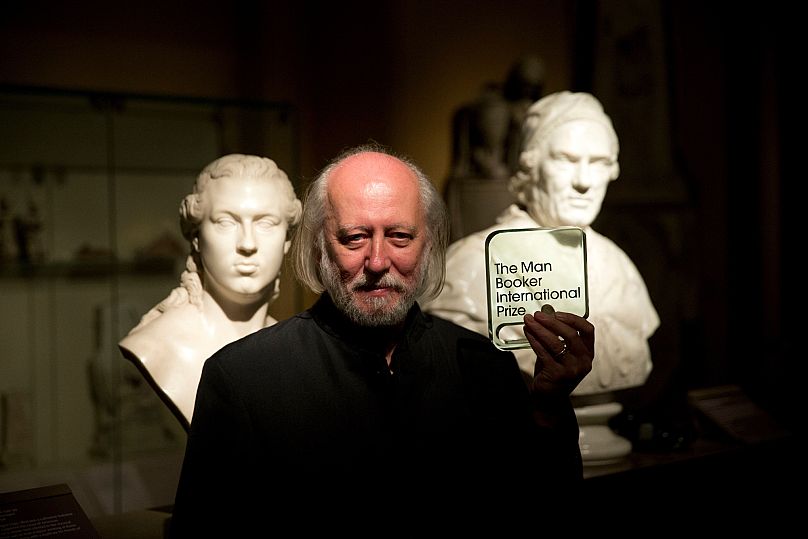Hungarian author László Krasznahorkai has been chosen as the winner “for his compelling and visionary oeuvre that, in the midst of apocalyptic terror, reaffirms the power of art.” Susan Sontag previously described the author as “the contemporary Hungarian master of apocalypse.”
Postmodern Hungarian author László Krasznahorkai has been awarded the Nobel Prize in Literature 2025 for “his compelling and visionary oeuvre that, in the midst of apocalyptic terror, reaffirms the power of art.”
 ADVERTISEMENT
ADVERTISEMENT
 ADVERTISEMENT
ADVERTISEMENT
The Nobel judges further praised his “artistic gaze which is entirely free of illusion, and which sees through the fragility of the social order combined with his unwavering belief in the power of art."
He is the first winner from Hungary since Imre Kertesz in 2002.
The 71-year-old novelist and screenwriter’s dystopian novels have won numerous prizes over the years, including the Man Booker International Prize in 2015 and the 2019 National Book award for translated literature.
Several of his works, which feature melancholic themes and winding sentences, have been adapted into feature films. “Sátántangó” (1985) and “The Melancholy of Resistance” (1989) were both directed by Hungarian filmmaker Béla Tarr – with whom Krasznahorkai has had a long creative partnership.
Additionally, Krasznahorkai wrote several screenplays for films by Tarr, including 1988’s Damnation, 1994’s seven-hour film Sátántangó, 2000’s Werckmeister Harmonies (based on "The Melancholy of Resistance”) and most famously, 2011’s The Turin Horse – one of Tarr’s most acclaimed films.
Euronews Culture reached out to Frédéric Cambourakis, director of the French publishing house Editions Cambourakis, who said: “This is a well-deserved award for László Krasznahorkai, who is one of Europe's greatest writers. We are immensely proud to have supported and championed his books over all these years!”
He added: “We would also like to express our sincere gratitude to Joëlle Dufeuilly, his long-time translator, for her exceptional work, thanks to which Krasznahorkai's voice is beautifully conveyed in France.”
Krasznahorkai joins an illustrious list of laureates that includes Ernest Hemingway, Toni Morrison, Bob Dylan and Kazuo Ishiguro.
The literature prize has been awarded by the Nobel committee of the Swedish Academy 117 times to a total of 121 winners.
Last year's prize was won by South Korean author Han Kang for her body of work that the committee said “confronts historical traumas and exposes the fragility of human life.”
The literature prize is the fourth to be announced this week, following the 2025 Nobels in medecine, physics and chemistry. Each prize carries an award of 11 million Swedish kronor (€1 million). The winners also receive an 18-carat gold medal and a diploma.
The winner of the Nobel Peace Prize will be announced on Friday. Donald Trump has been lobbying hard for the award, recently telling United Nations delegates “everyone says that I should get the Nobel Peace Prize.”
The final Nobel, the Nobel Memorial Prize in Economic Sciences, is to be announced on Monday.
Nobel Prize award ceremonies are held on 10 December, the anniversary of Alfred Nobel’s death in 1896.











